Orphan Nutrition Support: Feed Children, Build Futures
Millions of kids go without food every single day. The orphans are hardest hit. Without parents, they frequently go without meals and care. Hungry people are weak, stunted, and unable to realize their future. Orphan Nutrition Support programs for orphans are helping to bridge this divide. They offer daily meals, vitamins, and education about how to eat healthily.
Nutrition is more than food. It confers strength, solace, and dignity. Only a balanced meal will enable children to learn, play, and dream. Without it, many of us fall into sickness and despair. This post discusses why nutrition is so important for these orphans, what they go through, and how organizations such as SPAR Project make an incredible difference.
The Global Hunger Crisis and Its Impact on Orphans
And hunger is not just a number. Hunger is a harsh reality for millions of children. The World Health Organization estimates that close to 45 million children are wasted. Orphans are at increased risk, in part because they don’t have stable families to feed them.
Conflict, poverty, and displacement exacerbate the crisis. Many orphanages are strapped for donations. Food is scarce, and children eat just once a day. Without ORS, the very fact of survival is questioned.
What Does Orphan Nutrition Support Include?
Orphan feeding is more than one meal. It is an integrated system designed to help kids grow up healthy and strong. Key parts include:
- Daily protein, grains, and vegetable meals.
- Enriched foods contain vitamins and minerals.
- Caregivers’ and older children’s nutrition education.
- Additionally, there are soup kitchens that prepare food specifically for orphanages.
- Food packages for children in temporary shelters.
The goal is to satisfy short-term hunger while building long-term health.
Why Nutrition Is the Foundation for Orphans’ Growth
Food is life. For orphans, it can make the difference between a bright future and endless struggle. Here’s why nutrition matters:
- Enhances immunity—Solid diets provide a shield against common diseases.
- Brain support—nutrients for memory, focus, and learning.
- A promoter of growth—a nutritious meal ensures healthy gain in height and weight.
- Promotes stability—children with full stomachs are comforted emotionally.
Every balanced meal is an investment in a child’s future.
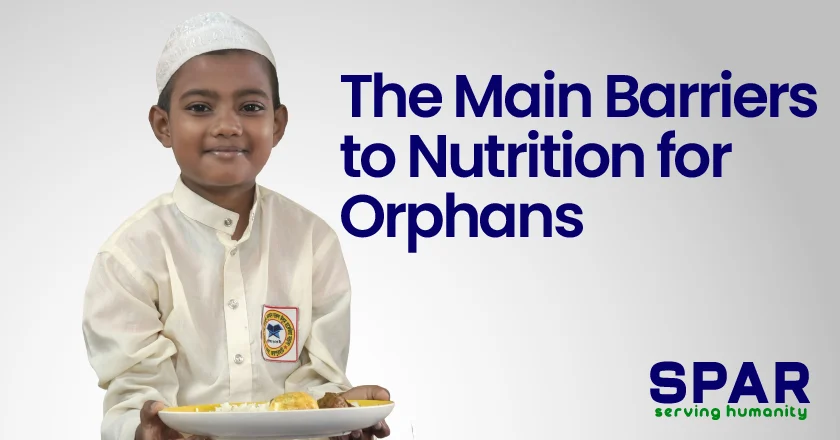
The Main Barriers to Nutrition for Orphans
Why are so many orphans still hungry? There are obstacles, certainly:
- Poverty—Most orphanages run on a very tight budget.
- Troubled spots—wars disrupt food shipments and flatten homes.
- Natural disasters—floods, drought, and earthquakes—disrupt access to food.
- There is a lack of knowledge among caregivers about what constitutes a balanced diet.
- Resources are strained—a dearth of staff and systems to operate continuous food programs.
These obstacles highlight the essential need for orphan nutrition support worldwide.
How Orphan Nutrition Support Transforms Children’s Lives
The benefits of excellent nutrition are as clear as the effects are visible. The little one who looked exhausted before and couldn’t run now smiles and runs. A pupil who couldn’t concentrate has started doing well in school. Orphan nutrition programs bring:
- Health—Kids get healed from malnutrition.
- Improved learning—Children who are fed do well in school.
- Emotional healing—A meal brings a feeling of being cared for and safe.
- Stronger communities—Healthy kids are resilient and ready to return the investment.
Any meal has repercussions long after it is consumed.
SPAR Project’s Mission in Orphan Nutrition Support
At SPAR Project, we believe every child deserves food, love, and care. Our programs focus on:
- We provide orphans with a hot meal every day.
- We feed malnourished children a diet consisting of supplements.
- And staffing community kitchens that cook at large volumes.
- Being transparent so donors can see where their help goes.
Your contributions can enable us to provide even more meals for children, one at a time.
The Key Elements of a Healthy Orphan Diet
There’s more to a balanced diet than satisfying meals. Orphans require nourishment that fulfills the body and mind:
- Protein, such as chicken or eggs, is essential for growth, as are lentils and beans.
- Carbs, such as rice, bread, or maize, provide energy.
- Fruits and vegetables are essential because they contain vitamins that can prevent illness.
- Dairy or its substitutes, such as milk or soy, are essential for strengthening bones.
- Water—Clean drinking water is essential for hydration and sanitation.
Nutrition is not a luxury—it’s a matter of survival.
The Long-Term Benefits of Nutrition Programs
Feeding children today is not enough for orphan nutrition support. It shapes their tomorrow:
- Education—Children brought up under federal attention are able to attend and concentrate at school.
- One reviewer said, “It is just outstanding!”! You cannot imagine how happy I feel. Healthier, more alive, and youthful.” /Health—Stronger bodies mean a less stressful life (read: fewer hospital visits)
- Jobs—Healthy young people can become better workers.
- The Need “If you have a healthy community, change is possible.” Strong communities grow strong leaders.
Nutrition support leads to survivability through the decades.
How Donors Can Make a Real Impact
Changing lives doesn’t require you to be wealthy. Little things mean a lot:
- You can sponsor a meal for one child or an entire orphanage.
- Make monthly contributions to support food programs.
- Collaborate with a business or mosque to finance feeding drives.
- Offer to help in the preparation and delivery of meals.
Every little bit of kindness they show is something that’s feeding not just bodies, but futures.
Stories of Change Through Orphan Nutrition Support
Every donation has a story of hope.
- One little boy in Africa was no longer growing. He gained weight after he joined a nutrition program and went back to school, and now hopes to become a doctor.
- A group of girls in Asia had played truant because they were hungry. With daily meals, they are thriving in their studies and aspiring to lift themselves out of poverty.
These stories show how much your assistance matters.
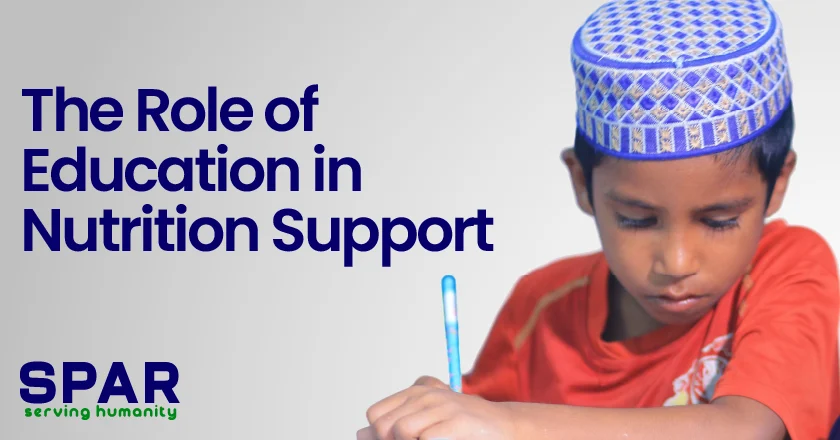
The Role of Education in Nutrition Support
Food alone is not enough. Caregivers and children also require an education in how to eat right. Programs teach:
- How to make balanced, simple meals.
- The significance of vitamins and clean water.
- How to store food safely and prevent waste.
Education means strong nutrition programs for generations.
How Technology Supports Nutrition Programs
Modern technology can help adopt these orphans:
- Smartphone applications link donors to what is happening at that moment.
- Tracking systems: Tracking systems are used to monitor food delivery so that meals can be delivered to the children in a timely manner.
- Gathering data aids in measuring impact and refining programs.
SPAR Project deploys these technologies to ensure transparency and effectiveness.
Challenges in Expanding Nutrition Programs
“There’s a lot of work to be done, even if we are making progress:
- Lack of funding restricts the number of children who can be fed.
- Food is late due to supply chain problems.
- Demand is so high that some children are still left out.
That is why donor and community support remains so critical.
Final Thought: Food Is Hope
For orphans, food is more than just nourishment. It’s love, it’s care, and it’s the hope for a better morrow. You provide orphan nutrition support, and you give kids the chance to grow, learn, and dream. Every meal matters. Be part of that change today.
What is orphan nutrition support?
That is the organized effort to get nutritious meals and food programs for children who don’t have parents.
Why are orphans at greater risk of malnutrition?
They lack stable families or incomes to provide them with three regular meals.
How does the SPAR Project get orphan feeding?
Through daily food services, supplements, and community-based kitchens.
Am I allowed to do monthly orphan help?
Yes. Monthly donations provide stability to programs and reach more children.
What kind of food is served?
Meals are made up of proteins, grains, fruits, and vegetables. They are nutritious and adapted to local diets.
Could businesses or mosques provide money or support for these programs?
Yes. Alliances allow programs to grow internationally in feeding orphans.
How can I begin to help now?
Click here to go directly to the SPAR Project donation page, select an orphan nutrition project to fund.
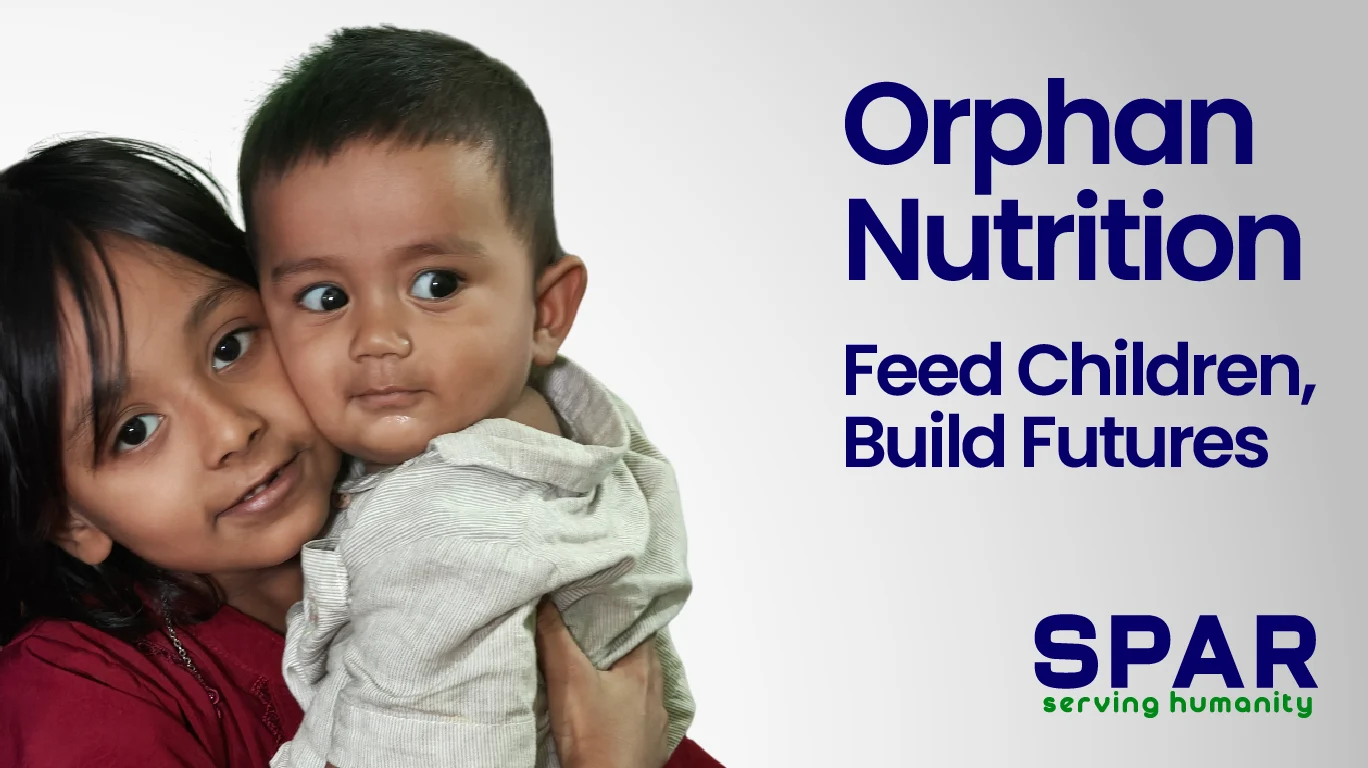
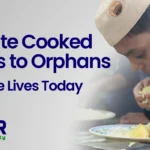
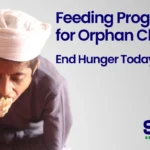
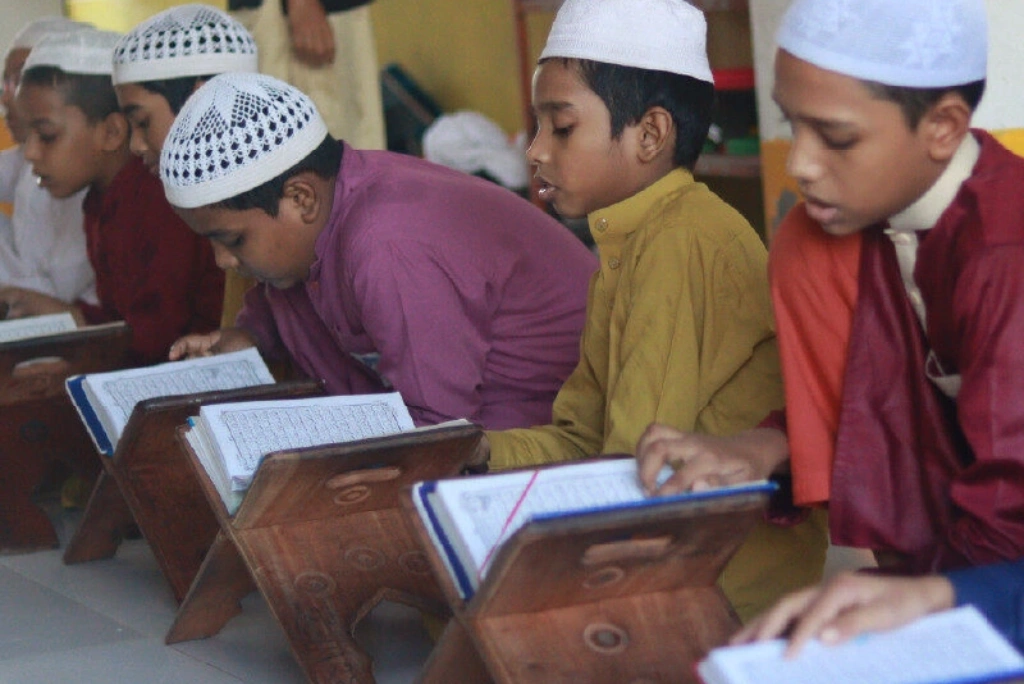
 Secure
donation
Secure
donation